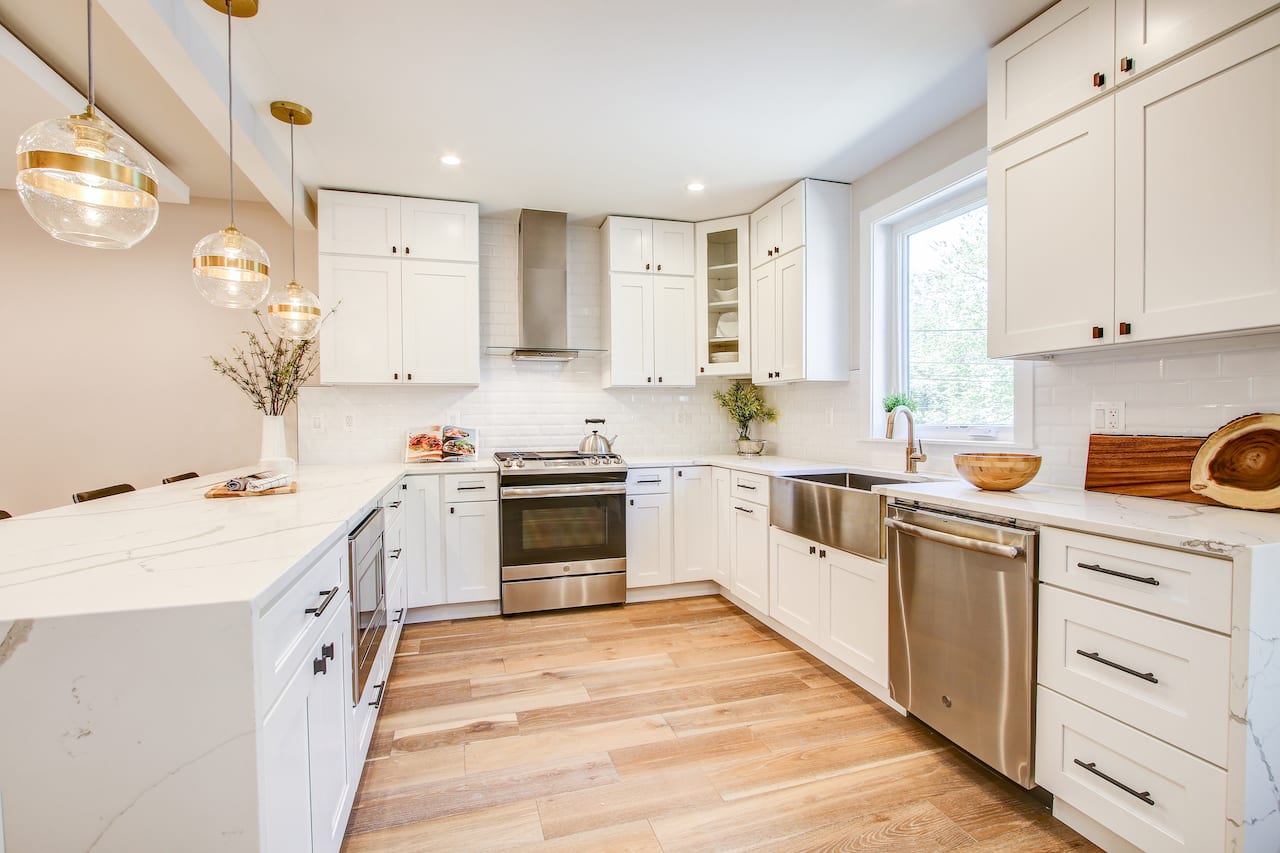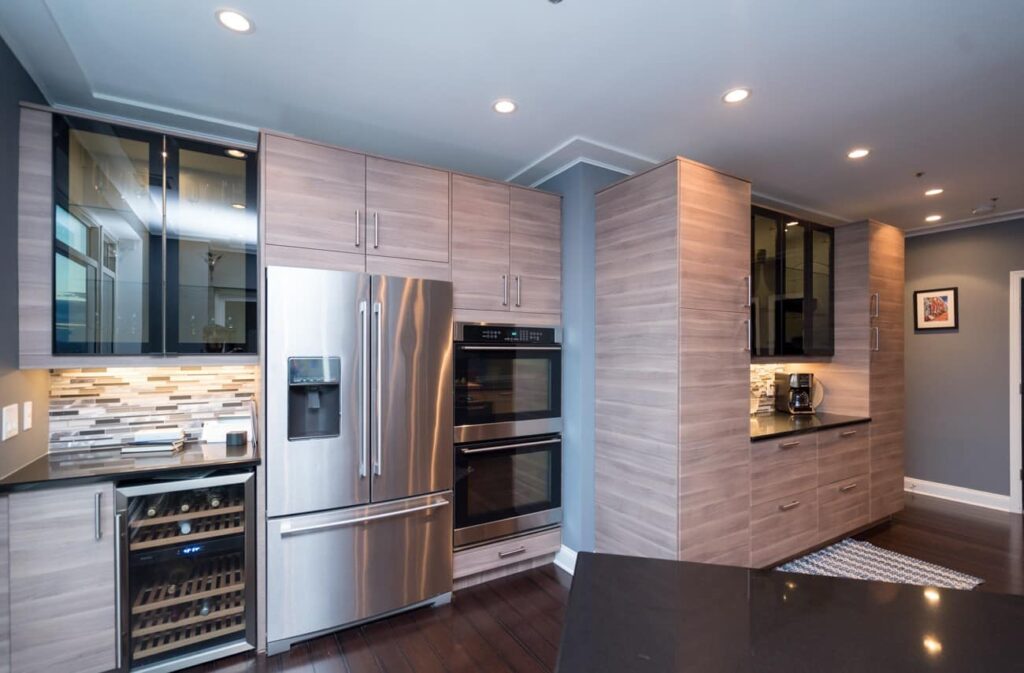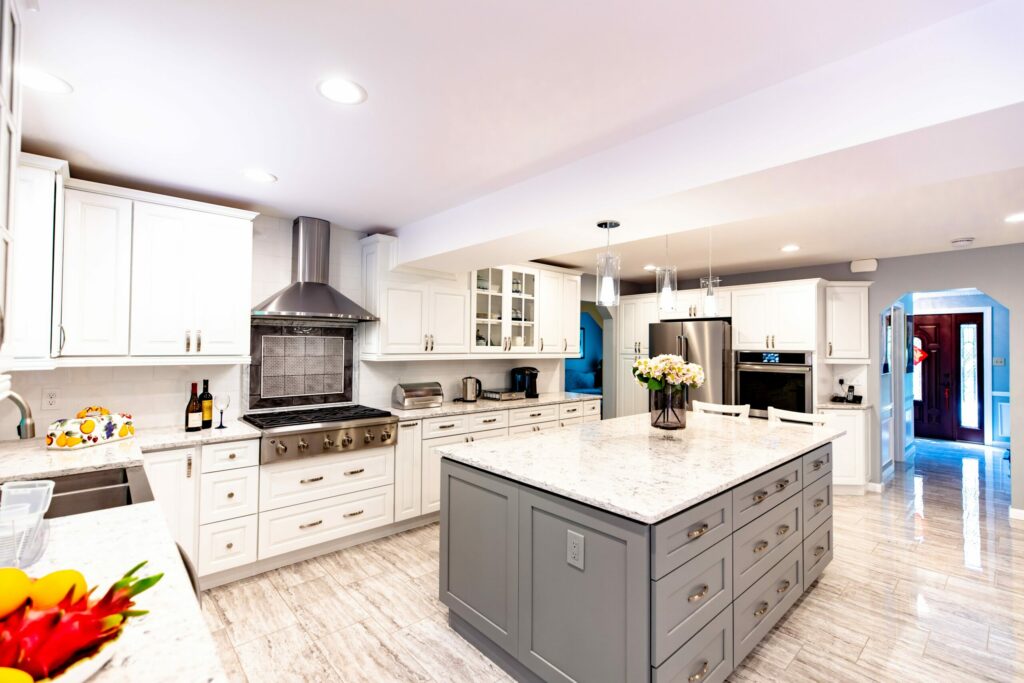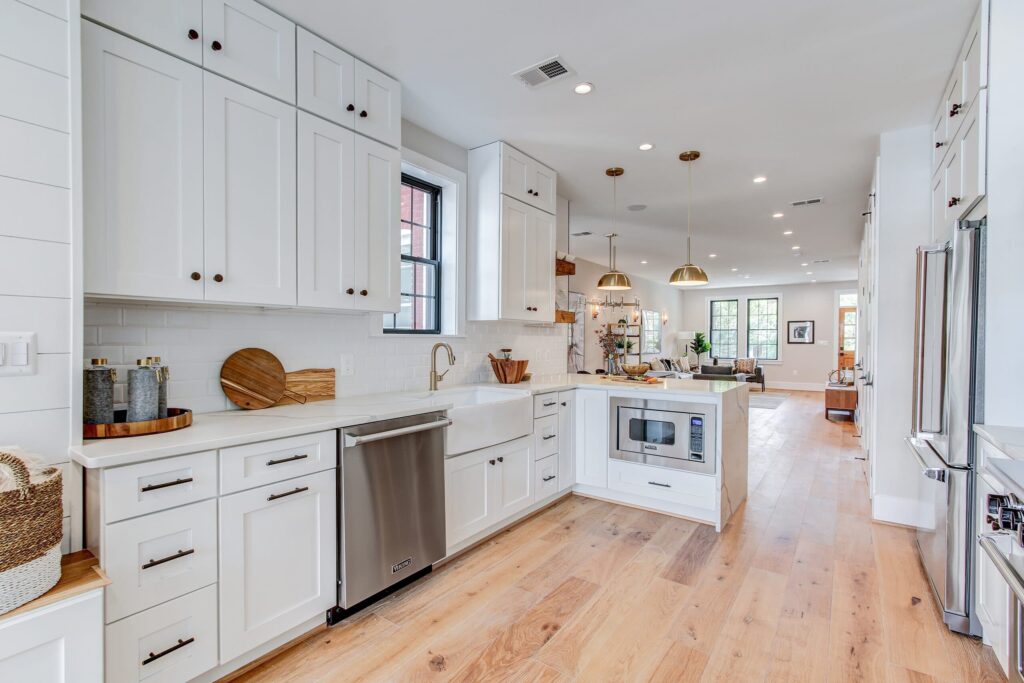
Is Kitchen Remodeling Tax-Deductible? The Answer Might Surprise You!
With tax season around the corner, are you wondering if kitchen remodeling tax-deductible or not? To put it simply, if a home improvement project is tax-deductible, remodeling a kitchen can cut down on the amount of tax you need to pay during tax season. It can also help you balance out your kitchen remodel costs. While tax cuts are always welcome, you also need to be aware of the guidelines that the IRS lays down before you claim them.
Contents
Repair or Remodel?
Unfortunately, minor repairs to a home are not tax-deductible as it is firmly instituted in US tax law. If you need to fix a broken floor, you cannot claim it while paying your taxes during tax season. However, if improving the floor is part of a bigger plan for remodeling your kitchen, you probably can claim it as a tax deduction.
Remodeling a Kitchen
You can categorize a kitchen remodel as a home improvement project because it adds value to the home. Besides, it improves the living conditions of the residents, and there are a number of different categories of home improvement that make kitchen remodeling tax-deductible.
For instance, if it is for medical reasons, such as giving access to disabled people, then under most circumstances, it will qualify as a home improvement and follow the due process.
Similarly, if you need to commence any repair projects while upgrading your kitchen, couple it with the remodeling project because it can help you claim all of it as a tax deduction.
Capital Improvements on Your Primary Home
When you sell a capital asset like real estate, the government usually wants a piece of the profit. However, as an incentive reassuring homeownership, the IRS allows you to exclude up to $250,000 of profit on the sale while filing taxes as an individual, as long as you have lived in it and owned it for at least two of the last five years.
Similarly, taxpayers who file a joint return with a spouse can exclude up to $500,000 of that gain. Either way, if your gain doesn’t exceed the maximum limit, you likely won’t need to report the home sale on your tax return.
Capital gains are usually calculated by taking the sale price of your home and subtracting it with the adjusted cost basis. However, adjusting the cost basis is a decorative way of saying the principal value of the house, i.e., what you paid for it at the time of possession, along with the cost of any other qualifying capital improvement and selling fees like agent commission.
Capital Improvement vs. Repair
You need to know that you cannot simply assume any old plumbing repair will count as an improvement. As defined by the IRS, a capital improvement increases the home’s value, alters its uses, and materially extends its useful life.
Let’s say that you are fixing something like a minor pipe that’s broken. In that case, it is usually considered basic maintenance, and it won’t qualify as a tax deduction unless you are using the home as an investment property.
According to the IRS, capital improvements include:
- Home Additions: Adding onto a home’s kitchen, bathroom, bedroom, garage, or patio.
- Exterior: A new room, windows or doors, even a new satellite dish.
- Insulation: Adding insulation to the walls, floors, or ducts.
- Systems: Adding or replacing HVAC systems, a furnace, central humidifier, soft water system, or lawn sprinkler system.
- Lawn and Ground: Landscaping, driveway work, fences, retaining walls, or a swimming pool.
- Interior: New kitchen appliances, kitchen upgrades, new flooring, or a fireplace installation.
- Plumbing: Improvements to water heater, septic system, or the water filtration system.
Is Kitchen Remodeling Tax-Deductible?
Many types of home improvement projects, such as kitchen remodeling in some circumstances, can qualify for tax credits. Hence, it is essential to understand the difference between a tax deduction and a tax credit.
A tax deduction comes from the income, so you pay less tax. On the other hand, a tax credit comes directly from the amount of tax owed. Therefore, you pay less in tax with a tax credit than with a tax deduction.
For instance, if you add new windows or better cooling or heating equipment in your kitchen, these items qualify for tax credits.
Frequently Asked Questions
Q1: Is your Home a Personal Residence? Or Do You Have a Home Office?
If you use your home solely as a personal residence, you cannot deduct the cost of any home improvements. But, if you or someone in your family is working from home, then you are qualified.
Home improvements that only benefit the home office, like revamping the kitchen lighting, allow you to deduct 100% of the expenses. Furthermore, any improvements that you make to your entire house are eligible for a tax deduction. However, it is based on what percentage of your house is taken up by your home office.
Hence, if 25 percent of your home is an office, then you can deduct 25 percent of the cost from upgrading your heating and cooling system from your taxes.
Q2: Do You Rent Out Your Home?
If you rent out your home, whole or a part of it, you can deduct the costs of kitchen remodeling or home improvements from the rental income. However, as with the home office rule, you may only deduct improvements that benefit the portion of the house that you have rented out.
In case the improvement benefits the whole house, you can deduct based on the percentage of the home on rent.
Q3: Did You Sell Your House or are Selling it Soon?
If you are selling your house, kitchen remodeling is tax-deductible. To qualify for a tax deduction, your home improvement has to add to your home’s value. It also has to extend your house’s life or provide your house with new functionality.
Q4: When in Doubt, Keep Records
Whenever you are going for a major kitchen remodeling project, it is important to keep a record of what’s happening. When the time comes to review your tax deductions, you will want to have records and receipts of every project you have worked on in the last year.
These tips should help you get started with approaching your taxes with potential deductions from a significant remodeling project. Nevertheless, as always, contact a tax agency near you in order to get the best information for your individual taxes.
Q5: Can I Deduct the Cost of Landscaping from My Taxes?
No, the cost of landscaping is generally not tax-deductible for personal residences. However, if you are running a business from home and the landscaping directly benefits the business, you may be able to deduct a portion of the cost. Consult with a tax professional for specific advice regarding your situation.




